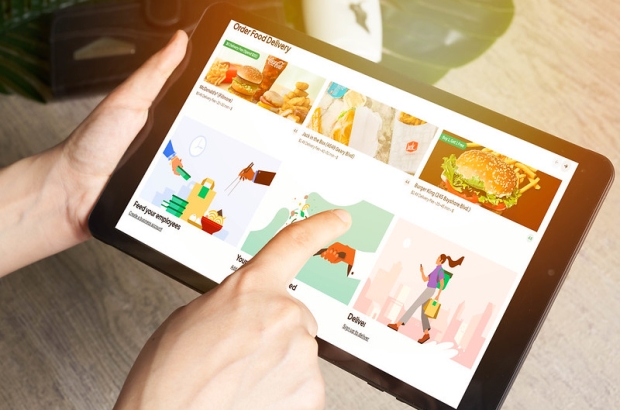- Daily & Weekly newsletters
- Buy & download The Bulletin
- Comment on our articles
'Dark kitchens' thriving in pandemic-era Belgium
It may come as a surprise to some who regularly order takeaway food but some of the restaurants listed in the many online directories are not restaurants as we know them.
They produce food, yes, but in some cases, there is no storefront or room inside for diners. These are called dark kitchens - or ghost kitchens - and are a relatively new phenomenon in Belgium despite exploding in the US, Asia and UK in recent years.
Dark kitchens really started to take off here in 2020 and their growth has been boosted by the pandemic. As fewer people have been willing and able to go physically for food, delivery services have prospered and those creating the food required have risen to the challenge.
"A dark kitchen is a central kitchen that operates as a virtual restaurant solely dedicated to delivery,” says Quentin Walravens, chief executive and co-founder of Brussels-based catering service Foodiz.
"We give the consumer the impression that they are ordering from a real restaurant with tables for diners but no, it is only a kitchen in the shadows. The advantage is that we have fewer overheads. You just need a kitchen that meets all the relevant standards and a space for the preparation of deliveries. It's much easier to develop than a classic restaurant."
On average, the kitchens at Foodiz, which will soon celebrate its two-year anniversary, prepare 200 orders every day for companies who order their food in for employees. Some 305 firms have already signed a partnership with the start-up.
"We provide them with a free personalised virtual canteen that allows their employees to eat better at work,” says Quentin Walravens. "They order food from their office at one or the other of our virtual restaurants. Their dishes arrive in a group order within the company and on an ad hoc basis."
Most dark kitchens go through an external operator, such as Deliveroo or Uber Eats, to deliver their orders to customers. Foodiz has, however, to take care of the whole operation, delivering its own food as well as preparing it. This works better for them as they only deliver to companies and their orders are centralised.
"We have our own application, our customers and we make our own deliveries, so we do not pay commission and we are more profitable,” says Walravens. “That way, we even manage to do well in times of crisis."
In Ghent, many sight-seers wander past the innocuous blue storefront of Casper not knowing that, behind the facade, a team of chefs is busy preparing around 150 meals a day for delivery.
“We were inspired by the phenomenon in United States,” said Matthias Laga, chief executive of Casper, which also opened in 2020. “In 2019, we had the idea to launch the concept in Belgium because it did not yet exist. We started during the first lockdown. It wasn't easy but we quickly realised it was the right choice. We have seen our turnover increase every month. The lockdown has helped us because people have been encouraged to order remotely and get delivered."
In two years, Casper has grown enormously and now has six dark kitchens in Ghent, Leuven, Antwerp, Bruges, Liège and Brussels. "Start-up costs are lower,” Laga says. “You don't have to invest in a storefront, or in a good location. Your staff costs are also lower because you don't need waiting staff. You can invest more in the kitchen."
The dark kitchen has cemented its place on the market but without threatening the classic restaurant model, according to Matthias Laga. "I don't think a dark kitchen is a competitor to a restaurant,” he said. “They are two different entities; we do not offer the same experience. We are more of an alternative to the supermarket or for people at home who don't feel like cooking."
And to attract as many customers as possible, Casper now has 10 different virtual brands. Giving customers the impression of ordering in different restaurants but in reality, everything is produced in the same place. "In this way, we try to respond as broadly as possible to consumer demands. Someone can order a burger, salad and lasagna in one transaction and one delivery."
Foodiz's turnover increased by 50% in 2021 compared to 2020. And the Brussels start-up sees a bright future. "Our goal is to grow by 6% per week," said Quentin Walravens. "We want to become essential on the Belgian market by the end of 2022. Then, open in Luxembourg and other cities in northern Europe for 2023, 2024".
At Casper, Laga and his team has decided to look abroad before expanding further in Belgium. "We have decided to stop our growth in Belgium for the moment, we are waiting for the market to mature,” he says. “That way, we will be able to set up in smaller cities in 2023. This year, we are really looking abroad. We are in the middle of looking for locations in the Netherlands and France."


















